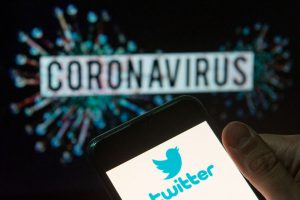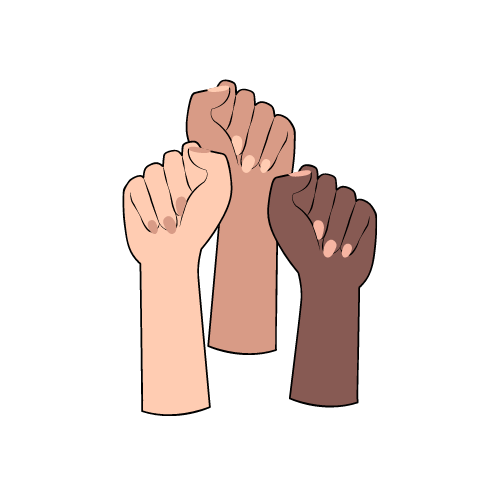
Keywords: Global pandemic, misinformation, media manipulation, participation, fake news, COVID-19, social media, new media.
Word count: 2042
This blog post will explore the spread of misinformation and fake news in media in the light of a global pandemic. I will also discuss the trending topic of media manipulation and why people tend to share false information, but also why misinformation is being created and spread in the first place. Highlights of the paradox of participation versus the spread of misinformation will be raised, as the accuracy and criticism have gotten a new meaning in the last couple of months. Can someone gain from spreading fake news in this context or are we all losers in this global pandemic?
“We´re not just fighting an epidemic; we´re fighting an infodemic”. – Tedros Adhanom Ghebreyesus (2020), Director of the World Health Organization (Pennycook et al., 2020: 770).
Tedros Adhanom Ghebreyesus also says that the spread of misinformation about Covid-19 may be the most contagious thing about it. He suggests for development of a real-time information sharing system that should draw from data and analyses from various forms of social media platforms. This could change the potential outcomes of spreading misinformation, as Tedros Adhanom Ghebreyesus means that panic can only be fought with information (Journal Travel Medicine, 2020: 1-2). However, media manipulation could be seen as a “media stunt” where certain leaders angle their readers or listeners opinions. They could also take advantage of already sensitive subjects or events where there already is great confusion and uncertainty. On the other hand, will these leaders gain from spreading misinformation regarding a global pandemic?
Before Twitter, Facebook, Instagram and Snapchat, one way of communicating and one way of spreading information was through public broadcast media which covers television, radio and newspapers. Today, that type of interaction and information spread is placed on new and social media where the audience is so large it is difficult to control (Miller et al., 2016: 2-3). The integration of information and communication technologies (ICT) makes it possible for almost anyone to be part of digital debates, which this blog post will exemplify but most important problematize. Information is spread across the globe in seconds and, therefore, a news segment or a tweet containing information about a global pandemic could be shown, re-posted and commented over and over again amongst the global audience. This is possible, mainly because of the development of ICT:s and the possibilities to participate in digital movements, according to Richard Heeks (2017: 119). Development means an increase in freedom, particularly the freedom of what you do in practice and what you say. Development of ICT:s could also be connected to informational freedom, which Heeks (2017) interpret as the ability to access information (Heeks, 2017: 238). So, freedom and the development of ICT:s is part of our everyday life, however, in the light of a global pandemic, could they perhaps create a misleading or critical use?
Let us move to the contemporary spread of incorrect information on social media, as this has developed and become a more trending and relevant topic than ever due to the global pandemic. Many of the world´s greatest leaders, for example, the American president Donald Trump, have created a large engagement on his Twitter account where he during the year 2020 have posted countless comments, statements and information about Covid-19. Trump has written untrue statements about how people can fight the virus alone, that there is an existing cure for the virus, which later have been corrected (and removed from social media) by infection control experts and scientists (Carrie Wong, 2020, Hydroxychloroquine: how an unproven drug became Trump´s coronavirus “miracle cure”). By spreading untrue information on social media with an enormous range, there is a big risk that a lot of people believe in this information. This can in turn result in that great leaders creating greater trust and belief from people because the source criticism has become deficient in the light of a global pandemic and human crisis. In this way, Donald Trump, among other world leaders, can consciously ride the wave of a crisis and “win” people´s trust, but are there any winners in a global pandemic? In times of uncertainty and crisis, people tend to make drastic decisions, where re-posts of misinformation should be included. Groups of people, such as media activists and “virus-activists” leverage the affordances of social media and to spread their various beliefs (Marwick & Lewis, 2017: 3).

The misinformation that has been and still is being spread since the start of this pandemic has resulted in people becoming ineffective remedies. It has also shown that humans overact (hoarding groceries) or underreact (ignoring restrictions) when it comes to how we handle the pandemic, which to the greatest extent is based on incorrect or angled information in various forms of media. So, why do people tend to forget the importance of accuracy and why do people share misinformation? (Pennycook et al., 2020: 770-771).
People share false and misleading content because they are manipulated by media and because social media contexts steal people´s attention on factors that take more of their attention than accuracy. This results in these people not only share misleading and untrue content, but it also leads them to not implement their preference for accuracy (Pennycook et al., 2020: 771). One main issue with this is that the core of media manipulation is attention and power-seeking, a so-called “media stunt”. The point of spreading misinformation is to gain attention, gain readers, angle people´s opinions, but for what reason and why ride on the wave of a global pandemic? (Pennycook et al., 2020: 771-772).
Different attitudes towards the same pandemic
I argue that interpretations and effects of informational uses of social and new media vary between people and that the outcome of that can be crucial to our behaviour. Therefore, I want to go deeper into the impact media has on our behaviour and responds. How humans interpret events differently and how we participate in media discussions on completely different levels, mainly because of media manipulation and fake news is something I want to discuss further. For me, it is interesting how we can be such easy targets when it comes to news and what is put out there, in the public sphere, for us.
During the last couple of months, we have been able to both be on the sideline and on the field, to watch how great leaders in different countries are handling the spread of Covid-19. For example, we have seen large differences between the US and Sweden in how the leaders and the infection control experts are exposing the situation, addressing the next steps and general information to the people. Perhaps the spread of misinformation and misperception is larger in the US than in Sweden? It would undeniably be interesting to do a larger study on this and by examining that hypothetic. In the US for example, people rely on a larger number of sources and newscasters regarding the spread of Covid-19. Also, many news programs are politically angled, and the spread of misinformation could tend to be larger in the US than in Sweden because of that. This could confuse because the spread of information in media affect and hit people differently and their attitudes towards the pandemic are being shaped thereafter.
Potential outcomes by spreading misinformation in the media
By writing about this, I want to raise potential red flags within media and the spread of misinformation, in a time where news is more accessible than ever. Research on the use of media in the context of international development has been limited. Also, the mechanisms by which users of social media platforms spread misinformation is not understood as well as it could be (Valenzuela et.al, 2019: 802). Valenzuela et.al (2019) argue that people have different motivations for using social media and new media. Some people use it to learn more about one´s community, events or political affairs. Some people are using interactive platforms such as social media that can involve different behaviours, for example, to read posts and news shared by friends or endorsing news from professional media sites. People are shaped by the way they use social media, how they participate in forms of media but most important they are shaped by the way they interpret the news that is presented in the media (Valenzuela et.al, 2019: 803-804). Therefore, I find it relevant to talk about whether our behaviour or attitudes can change significantly regarding something commonly as Covid-19, because of media manipulation and misinformation. Valenzuela et.al (2019) argues that effects on informational uses of social and new media on political and societal participation are inevitable from its effects on sharing misinformation. Further, the authors (2019) argues that participation in social and new media, by spreading and by interpreting misinformation have a huge impact on citizen´s knowledge, beliefs and behaviours (Valenzuela et.al, 2019: 802). This post is linked to many debates on different levels; however, the most important debate is perhaps the one discussing whether we have the same level of knowledge regarding this global pandemic.
Many of the discussions and thoughts in this post are inspired by a research article named “Fighting COVID-19 Misinformation on Social Media: Experimental Evidence for a Scalable Accuracy-Nudge Intervention”. The article highlights some important points regarding this, especially that it is interesting that the spread of the information about Covid-19 is related to self-reports and the individual concern about the virus (Pennycook et al., 2020: 775). I do not have an answer to what the solution could be or how to stop the spread of misinformation about Covid-19, or what the result from this could be in the long run. However, it is important and relevant to highlight the obvious and not so obvious issues, to instead spread the importance of accuracy and source criticism. What I do know is that we are using our freedom of participation and we are taking advantage of the ICT-developments more than ever. Media manipulation is not new; however, it continues to be extensive and it is an effective way to spread the word and to control or guide people´s behaviours or attitudes. Thus, are there anyone or anything that can benefit from spreading misinformation and manipulate in the media, or are we all nothing but losers in this global pandemic?
Personal reflection
Since September, and the beginning of my blog journey, I have been diving into current, global debates and events, trying to connect those to the usage of social media and how this period is affecting us. Personally, in the majority of my posts, I have gone back to how media manipulation and the increased spread of (mis)information can harm our society, our interpretations and knowledge. Therefore, it is no surprise that my final, in-depth post, dived deeper into why misinformation in general but mainly about Covid-19 is being spread, and what the potential outcomes of media manipulation can be.
The learning outcomes from this blog exercise has been huge for me. I knew that I enjoyed writing and to express my opinions and feelings in writing, but I did not know I would be so eager to immerse myself in various topics or get so involved in other people´s thoughts and blog posts. As this was a group exercise, the opportunity to learn from each other was almost given, as we were all interested in similar topics. For example, I knew early on in the exercise that I wanted to learn more about digital activism and its effectiveness. Before we started the actual blog, we discussed different angles that we could approach this topic from, and I learned about the term “slacktivism”. This term has been useful for me as I learned to look at digital activism from a new point of view and I increased my interest even further.
My decision to focus on the participation in media, digital activism and media manipulation was driven by my participation in media; how I interpret certain events and news. By using my personal, inner voice and by being able to reflect on theories behind the practice, I have learned to criticize my behaviour, but also the way media is being used and exploited in extreme times. Finally, this blog has been important in my personal development as I have been able to share my opinions and thoughts for a public audience.
References
Carrie, Wong, Julia. 2020. Hydroxychloroquine: how an unproven drug became Trump´s coronavirus “miracle cure”. Tuesday, 7th of April. URL: https://www.theguardian.com/world/2020/apr/06/hydroxychloroquine-trump-coronavirus-drug
Heeks, Richard. 2017. Information and Communication Technology for Development (ICT4D). First Ed. Taylor and Francis Group.
Journal Travel Medicine, 2020. The Pandemic of social media panic travels faster thank the COVID-19 outbreak. Vol 27. No 3. Pp. 1-2.
DOI: 10.1093/jtm/taaa031
Marwick, Alice E., Lewis, Rebecca. 2017. Media Manipulation and Disinformation Online. Data & Society Research Institute.
Miller, Daniel., Costa, Elisabetta., Haynes, Nell., McDonald, Tom., Niculescu, Razvan., Sinanan, Jolynna., Spyer, Juliano., Venkatraman, Shriram., Wang, Xinyuan. 2016. How the world changed social media. UCL Press. London: University College. Doi: 10.14324/111.9781910634493
Pennycook, Gordon., McPheters, Jonathon., Zhang, Yunhao., Lu, G, Jackson., Rand, G, David. 2020. Fighting COVID-19 Misinformation on Social Media: Experimental Evidence for a Scalable Accuracy-Nudge Intervention. Psychological Science 2020, Vol. 31(7) 770–780. Doi: 10.1177/0956797620939054.
Valenzuela, Sebastián., Halpern, Daniel., Katz, James E., Miranda, Juan Pablo. 2019. The paradox of Participation Versus Misinformation: Social Media, Political Engagement, and the Spread of Misinformation. Digital Journalism. Vol 7: No 6. Pp. 802-823. New York: Routledge. Available here: https://doi.org/10.1080/21670811.2019.1623701
DOI: 10.1080/21670811.2019.1623701
Photos
Carrie, Wong, Julia. 2020. Hydroxychloroquine: how an unproven drug became Trump´s coronavirus “miracle cure”. Tuesday, 7th of April. URL: https://www.theguardian.com/world/2020/apr/06/hydroxychloroquine-trump-coronavirus-drug
Shinkman, D. Paul. 2020. Government Feuds With Twitter Over Claims China is Exploiting Coronavirus. May 11th. URL: https://www.usnews.com/news/national-news/articles/2020-05-11/government-feuds-with-twitter-over-claims-china-is-exploiting-coronavirus

